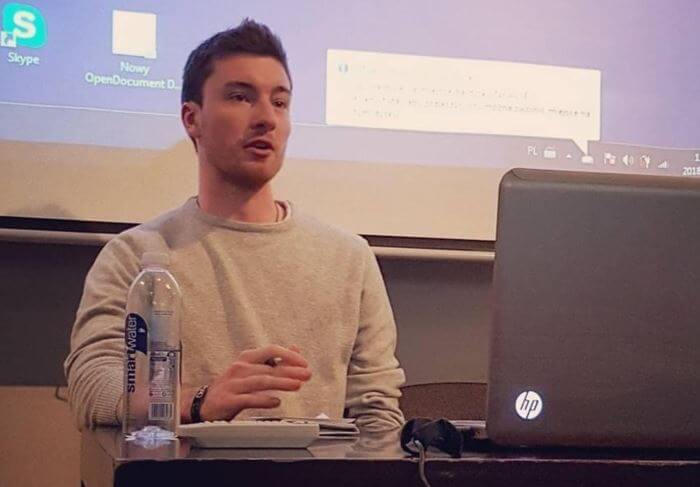The ‘Two E’ approach
Dr Tim Lowe is the VRU’s Evaluation Lead, but brings expertise in ethics to the unit’s leading work on data. In his latest blog, he discusses why evidence and ethics are so vital to the VRU’s work.

Following 8 years at university studying philosophy I joined the VRU at the end of September 2021 as the Research Lead. There are many reasons why I was attracted to working within the VRU, but if I had to pick out something specifically it would be the commitment to, and value placed on, ethics within the unit. I saw a unique opportunity to use my skill set and knowledge to further develop the ethical considerations around the work of the VRU, and jumped at the opportunity to get involved.
I like to think of the VRU’s work as depending on two key and interlinked things: evidence and ethics (The two ‘E’s as it were). On the one hand our work depends heavily on being able to evidence need: what are the risk factors at play? What interventions can we fund to reduce the risk of harm to individuals? How can we be sure that these interventions produce the desired outcomes?
On the other hand the thrust of the VRU is that treating violence as a public health problem is more ethical because it allows you to reduce harm to individuals and populations by not criminalising them, and by using the evidence to support them as best as possible. It’s about using the evidence for public good.
To the end of evidence, within the network of 18 VRUs across England & Wales, we have established ourselves as the national lead for data, based upon the innovations that we have developed. Most notably a new multi-agency data-sharing platform called Thames Valley Together.
Thames Valley Together is simple in its ambition; to create a technical solution which allows us to bring together multiple feeds of information and data from the many partners. This includes police systems, information from social care, from children’s services, from partners in HM Prisons & Probation, youth justice, education and more.
By improving the way we share, collate, overlay and analyse data we are able to create a far richer picture. This insight can inform the way organisations respond to risk factors at an individual and population level to understand the health of our communities, and try to reduce harm as much as possible.
We have created the system architecture, put in place a complex set of robust information sharing protocols, and have excellent security and data management processes in place to protect data. We are now starting to receive data not only from the police, but from other partners in local authorities and more. We’re beginning our work to analyse this information and to create new ways of visualising the data to inform our work.
I won’t dwell further, but you can learn more about the Thames Valley Together data project by reading my colleague Det. Ch. Insp Lewis Prescott-Mayling’s excellent blog here.
Evidently, considering the first ‘E’ of evidence has required a large amount of work to ensure that the richest possible picture can be derived from the data. This requires a large technical skillset to set up the appropriate architecture.
The conversation around ethics (the second ‘E’) is no less technical and important, but in a slightly different way, and also requires individuals with the right skillset to consider these questions. We know that many people are concerned about data use, particularly by services like the police, and the way that the police handle data will be crucial to the legitimacy of the service going forward. Ensuring that the right people and structures are in place to rigorously consider the ethical issues is crucial.
This is where my specific role and skills become increasingly valuable. As part of my role I’ve been managing and thinking about the Data Ethics Committee we established to guide the way we approach the Thames Valley Together project. A large amount of work has gone into this, considering traditional philosophical questions of legitimacy, and also more traditional ethical questions that reside beyond the normal information governance procedures.
To assist with thinking about these questions with the appropriate academic rigour, I have recently been made a Visiting Fellow in Police Data Ethics at the Ethox Centre, University of Oxford. This allows us to bring in ethical expertise, not just held by myself, but through the conversations and connections that can be developed in this relationship. This sets us apart in having strong information governance processes, but we also have another layer to our ethical considerations in being able to bring in this expertise.
I recently attended a National Police Data Ethics Workshop at the College of Policing, which provided the opportunity to be involved in the national conversations around these issues. It was great to be able to bring my expertise to bear in these conversations and hear about the work going on more broadly.
I’m incredibly excited to be involved in this work and able to push forward conversations around data ethics and policing. This will be one of the most important ethical issues going forward and I think we are positioned very strongly to consider these with the depth that the issues deserve, and develop leading work in this area as we are already with Thames Valley Together.